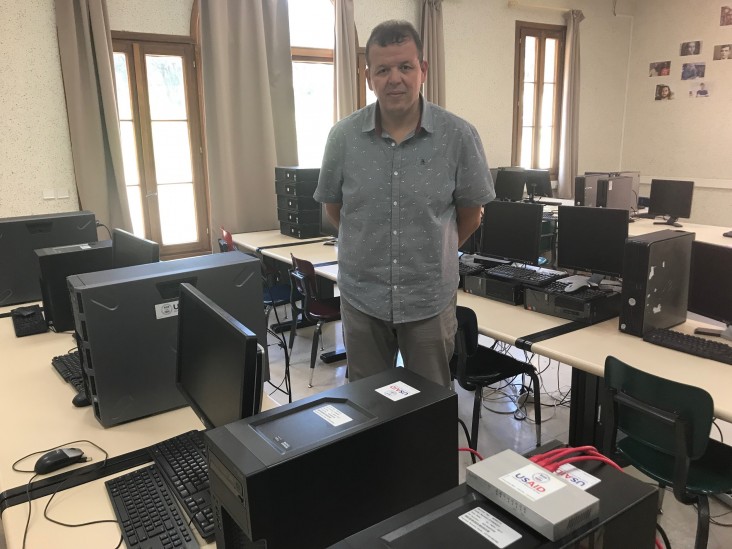Speeches Shim

Partnerships for Enhanced Engagement in Research (PEER) is a USAID program that is implemented by the U.S. National Academy of Sciences to award grants to scientists in developing countries who partner with U.S. collaborators on research activities with a strong potential development impact. USAID awarded two grants of approximately $250,000 each to Moroccan scientists working on clean energy. Below are interviews conducted with the two researchers, who give the latest updates to their projects.
Mohamed Riduan- Renewable Energy in Smart Buildings
Meet Riduan, another Moroccan PEER research grantee from Al Akhawayn University in Ifrane who is paired up with Driss Benhaddou at the University of Houston to look at integrating renewable energy into smart buildings.
Q: Can you explain your research to me?
A: Recently, Morocco has adopted a strong [national] policy on renewable energy. Our goal during the first stage is to integrate renewables in a smart building at Al Akhawayn University, and later on we want to expand it to to all university buildings in Morocco. By doing it this way, we can have the whole university campus act as a microgrid. A microgrid could be a small geographical area, like a campus, a resort, or a small city, that produces its own energy. With this energy, they send it to the national provider making electricity flow dual directional, from producer to the consumer, and from us, the consumer, to the producers.
Q: So far, how has your experience with PEER and USAID been?
A: This is my first experience with PEER and its formidable (wonderful). I’m really enjoying it and am very optimistic that this project will attract and welcome further projects and support in Morocco and I have experienced positive interactions with partners and administration through emails and meetings. My experience thus far has been ideal in terms of researcher - funder relations.
Q: How did you hear about the PEER grant program and what made you apply for it?
A: PEER, being in their sixth cycle, is very well known. Their projects have a prestigious reputation amongst university research programs and is among the top research funding programs in existence. I was introduced to PEER in 2013, when a professor from the University of Houston on a Fulbright scholarship was instructing in Ifrane. As it turns out, my very first link to this project ended up becoming my US counterpart. He has two main roles: maintaining the USAID spirit in the project and sharing his experience with us.
Q: What are some challenges that you have faced in doing this project and how have you overcome them or are working to overcome them?
A: The first challenge lies in managing the project, specifically in balancing the disparities of perspectives on teamwork between the North American education style and the French system (common in Morocco). The second challenge lies in anticipation of implementing the project. As you know, Morocco has the largest solar plant in the world. When meeting with colleagues in the U.S., they were shocked to hear this because Morocco is a third world country and is not known in the international network, yet still we have the largest solar plant. With this project, we want to leverage the role of Moroccan universities in research fields towards aiding our national development.
Q: What is your favorite aspect of your research or your experience thus far, something you have enjoyed either working with PEER or USAID or with your partners or in discovering something about your research?
A: Although we are only at the six month mark, my favorite aspect would be the sense of support provided by USAID and PEER. Because of this label, I feel we have a strong project that could be taken further. I am very optimistic thanks again to the funding and continued support of USAID and PEER.
Q: Do you have any advice you could lend to any aspiring scientists or researchers?
A: For the researchers, it is essential to work in fields that have direct impact on society. I believe that Morocco must focus on industrialization because our problem here in Morocco is that we always buy things. We just buy,buy, buy and we don't work to create our own. In the United States, nearly all the research is done in universities with strong cooperation with industries.

Comment
Make a general inquiry or suggest an improvement.